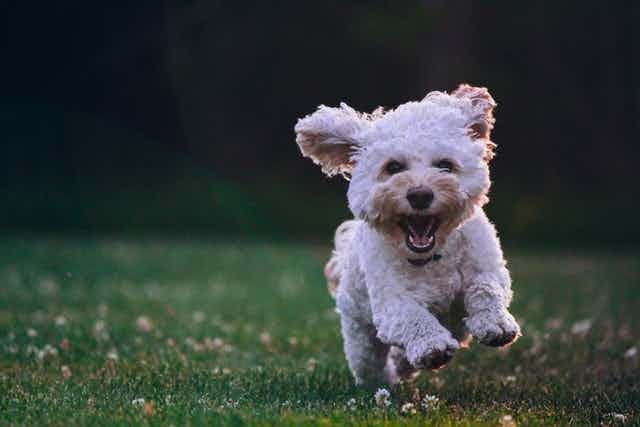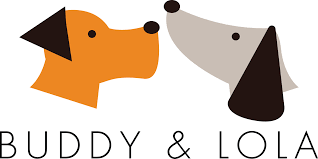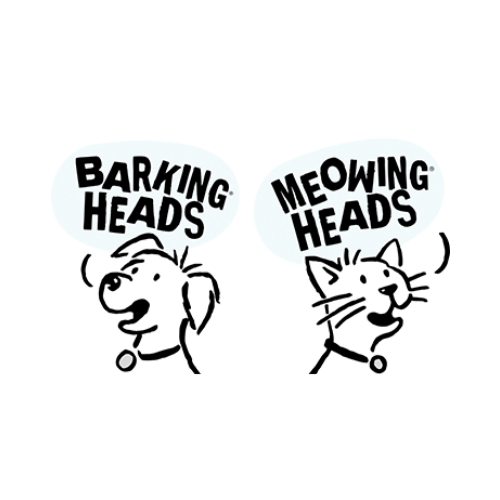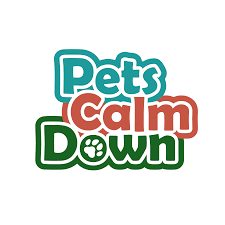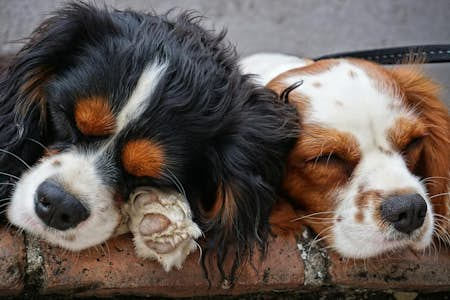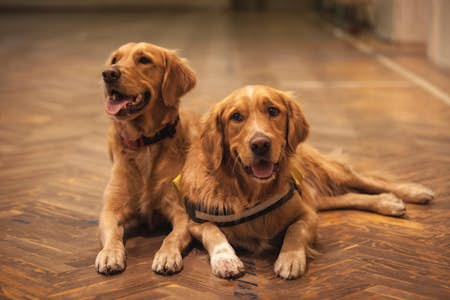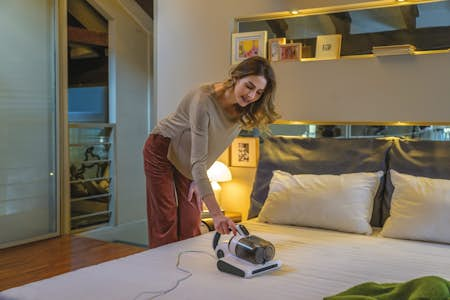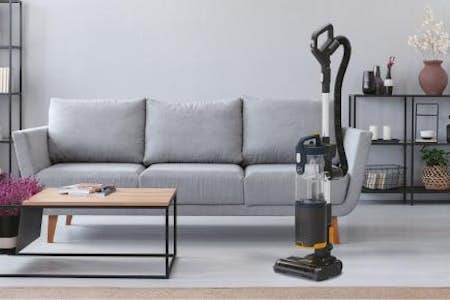Let’s be honest: most dogs aren’t exactly known for being couch potatoes.
Think of a stereotypical pet dog. You probably imagine an animal with high energy levels that needs daily exercise and barks its head off when it doesn't get enough of a cuddle.
While there are plenty of very active dogs out there, wannabe dog owners who have a little less free time can still welcome a pup or pooch into their home. Lower-maintenance dog breeds are perfect for first-time dog owners who aren't experienced in looking after demanding dogs and for older people who may have a little less energy.
Finding a companion dog or family pet that’s not too much of a strain on your time and energy levels is relatively simple. So, let’s look at some of the best dog breeds for families who need something more chilled out.
Whether you're looking for a tailored diet solution for your furry friend or are looking for better value from your pet food shopping, our providers have various options to help meet your needs. Click a brand below to discover more of what they offer!
What makes a dog low maintenance?
There are several qualities you can look out for if you want a low-maintenance dog breed. It’s almost impossible to find a dog that will tick every low-maintenance box, so weigh up what’s most important for your lifestyle and choose a breed that suits you.
Exercise
Dogs with low energy levels need less exercise than more energetic breeds. Usually, smaller dogs need less exercise than larger dogs – though this isn't always the case. Age also plays a role in how much exercise a dog needs. So consider adopting an older pooch instead of getting a puppy if you're looking for something more relaxing (think slow, ambling walks in the park rather than frantic runs!).
Choosing a dog based on its exercise needs is an excellent way to ensure you select a reasonably low-maintenance dog.
Type of fur
Shaggy or long-haired dogs need more grooming than dogs with shorter coats. Trips to the groomer can be both expensive and time-consuming, so consider a short-haired breed if you want to ensure minimal grooming is required.
Weekly brushing is usually recommended for most dog breeds, but if you have a long-haired breed, you may have to brush them daily. Long-haired breeds also tend to moult more than shorter-haired dogs, so you'll have much more vacuuming to do.
Choose a dog with a short coat to minimise trips to the groomers and time spent hoovering.
Separation anxiety
Some dog breeds suffer more from separation anxiety than others. Dogs that need to be constantly around their owners are obviously much more high maintenance. They may start to whine as soon as you leave the room, making it almost impossible for you to do anything without them.
If you spend a lot of time away from home (for example, if you work outside the house or have lots of daily engagements), finding a breed that copes well on its own for a while is good.
Click here for more information on how long you can leave a dog alone.
Size
In general, dogs of a small size tend to be lower maintenance than their bigger counterparts.
They need less food, take up less space and are usually easier to clean up after. They also require less time at the groomers, simply because there’s less of them to groom!
Additionally, lapdogs tend not to be as strong as their bigger counterparts, so they can be less of a challenge when they’re puppies – if you have a big dog that likes to jump up, people will expect you to train them out of it as quickly as possible, whereas small dogs can usually get away with it for a little longer!
Drool
Many potential dog owners forget about the impact drool can have in their homes. Dogs that drool a lot – usually breeds with lots of skin folds around their mouths – are cute to some but pretty repulsive to others.
But whatever your opinion on these dribbly dogs, bear in mind that if you choose a dog with a lot of drool, you’ll be having to clean up more mess.
Intelligence levels
Dogs with higher intelligence levels are easier to train than dogs that are a bit lacking up top. Dogs that are easier to train tend to be better behaved, meaning you’ll be in for an easier time in the long run.
Choosing an intelligent dog breed means you can spend less time training and dealing with an unruly pet.
However, Jenny from https://www.dfordog.co.uk takes another perspective: "Intelligent dogs are a lot like having a toddler in the house and, just like small children, brainy breeds will constantly seek attention. Clever dogs get bored easily and, if they are not sufficiently stimulated, they will find something to do and it will probably be something you won't approve of.
"A smart dog knows exactly what to do to get your attention. So while less intelligent dogs may be slower to train, they also tend to be less demanding on your time."
Examples of low-maintenance dog breeds
To help you decide which dog is right for you, here’s a list of some of the best dogs if you want a low-maintenance pet.
Chihuahua
The Chihuahua is one of the smallest dog breeds in the world, usually measuring no more than 20 centimetres or so. They're very affectionate with their owners but can be pretty yappy, so they may not be the best choice if you're looking for a quiet breed.
They don't shed much, and they aren't known for drooling. They're relatively easy to train, too.
Boston Terrier
Boston Terriers are super affectionate with their owners, other dogs, and young children. They're great for people with kids or grandchildren, as these fun-loving pups love playtime.
They're intelligent and eager to please their owners, meaning they're easy enough to train, but they don't need constant stimulation to be happy. They also have pretty short coats, so not too much grooming is necessary to keep them looking their best.
Bullmastiff
The Bullmastiff is a wonderful breed if you want a watchdog or guard dog. These pups are incredibly loyal and can be very affectionate. It’s a pretty high-energy breed, but they’re also easy to train and don’t tend to bark unless something is wrong.
These dogs are very intelligent, so they thrive with a job to do or an activity to keep them occupied. Bear this in mind when you’re leaving the house without them.
Bullmastiffs are a little more likely to drool and dribble than Chihuahuas or Boston Terriers, but it’s by no means a constant waterfall!
Greyhound
Sleek, lithe, and gentle, the Greyhound is a perfect dog for people looking for a good-natured family dog. Greyhounds are incredibly fast and athletic, and they love to run at full speed – but they also love lounging around, napping and relaxing. They're not a good choice if you don't live somewhere with a running spot nearby, but they also don't need as much exercise as you might expect. Stick to a regular routine, and your pup should be happy.
The Greyhound is a medium-sized breed, measuring up to 75 centimetres in height. If you want something a little smaller, opt for the miniature version: the Italian Greyhound. It’s about half the size.
Whippet
Like Greyhounds, Whippets are usually very relaxed dogs. They usually only need short walks, but they like running around, so a garden will improve their quality of life.
Their short coats don't need grooming more than a quick brush now and then and the occasional bath. They're also highly intelligent, meaning they're easy to train and normally well-behaved.
Whippets are good with children and other pets. They also love a nice cuddle, so they're an excellent choice for anyone looking for a cosy companion!
Maltese
Another perfect choice for anyone looking for a friendly and affectionate companion is the Maltese. They're incredibly loving and cuddly with their owners and adept at adapting to different situations. They can be left alone for a while, as long as you give them plenty of attention when you return.
These dogs have beautiful floor-length coats, requiring brushing almost daily. However, they don't usually shed too much if well-groomed, which is a bonus. In addition, their small size means they don't need lengthy walks, so they're great for owners with lower energy or less time for outdoor exercise.
Havanese
The Havanese is another excellent breed if you're looking for a low-maintenance pet. Small, fluffy, and adorable, this dog is also incredibly affectionate. Havanese dogs love their families, other dogs and small children, meaning they’re a perfect family dog. They love to play as often as possible, so they may not thrive if left alone for long periods.
They don’t drool and don't need daily grooming – once a week or so should be okay to keep their coats in good condition.
The Havanese is also an intelligent breed that's relatively easy to train. They enjoy barking – not as much as the Chihuahua, but they’re still pretty vocal – so this should be a consideration if you like peace and quiet!
Dachshund
Dachshunds - affectionately known as sausage dogs - are another excellent choice.
Their small size means they're suitable for families or people without a lot of space, and they have a big personality. They're pretty vocal as a breed, but they're relatively easy to train and enjoy cuddling up on the sofa just as much as causing trouble – they can be a bit cheeky!
Thanks to their short coats, they don't need daily grooming and don't tend to moult too much. To keep a Dachshund happy, ensure you have a stash of toys to keep them busy - they love playing!
Poodle
Poodles come in three sizes: standard, miniature and toy. Toy Poodles measure less than 30 centimetres in height – they’re tiny! Miniature Poodles are between 30 and 45 centimetres, and standard Poodles are between 45 and 60 centimetres tall.
The breed is a water dog, and they love to swim. They’re a low-shedding breed and hypoallergenic, so they are a fantastic option for anyone with allergies. However, their thick, curly coats need regular brushing and frequent trims – you’ll need to learn to do this yourself if you want to avoid monthly trips to the groomers.
Despite their more hands-on grooming needs, Poodles are fantastic for people who want a reasonably low-maintenance pet. They're incredibly affectionate and whip-smart, so they're very easy to train.
Shih Tzu
Another dog that falls into the toy breed category, the Shih Tzu is a cute little dog that’s cuddly, affectionate and friendly. They’re great with children and tend to get on very well with other dogs.
Shih Tzus don't tend to shed, but they need regular grooming to keep their long coats in good condition. However, they're a highly adaptable breed that's easy to train but doesn't need too much physical or mental stimulation. A short walk every day with a few toys at home should be enough to keep these little pups happy.
Labrador Retriever
Labradors are among the most popular dog breeds in the UK, and it's not hard to see why. These lovely dogs are friendly and very outgoing – they make friends wherever they go, whether with people or other dogs. They don't tend to drool too much and don't need daily grooming. However, they tend to shed, so buy a good vacuum cleaner if you want to keep your house looking its best!
Labradors are incredibly playful and enjoy almost constant games. They're not the best option if you're out of the house for long periods, but they're also very adaptable, so you can be flexible if needed.
Cavalier King Charles Spaniel
The Cavalier King Charles Spaniel is another good option for households looking for a low-maintenance pet. These dogs are small and graceful – not to mention incredibly cute – but they don’t need too much in the way of walks or entertainment.
They have luscious long coats but don't shed as much or need frequent grooming as other long-haired breeds. They’re very sociable and friendly, so they get on well with other dogs and young children, but they can easily adapt to owners who are active or who prefer relaxing on the sofa.
Dogs to avoid
Here are a few dog breeds to avoid if you’re looking for a low-maintenance dog:
- Huskies – they’re highly energetic dogs that require almost constant attention.
- Border Collies – these are a herding breed that aren’t suited to owners who can’t provide continuous mental and physical stimulation.
- French Bulldogs (Frenchies) and Pugs – they seem like they’ll be easy to look after, but their squashed faces often lead to breathing problems that can cause serious health issues.
The best low-maintenance dogs
It's easy to get caught up in the excitement of buying a new puppy, but it's essential to ensure that the dog you're buying is a good fit for your household.
Some dogs need a fair amount of attention; if you can't give them that, it's better to look for another breed – or another pet entirely. A dog isn't a right but a big responsibility, so you and your family must be up to the challenge before you commit.

